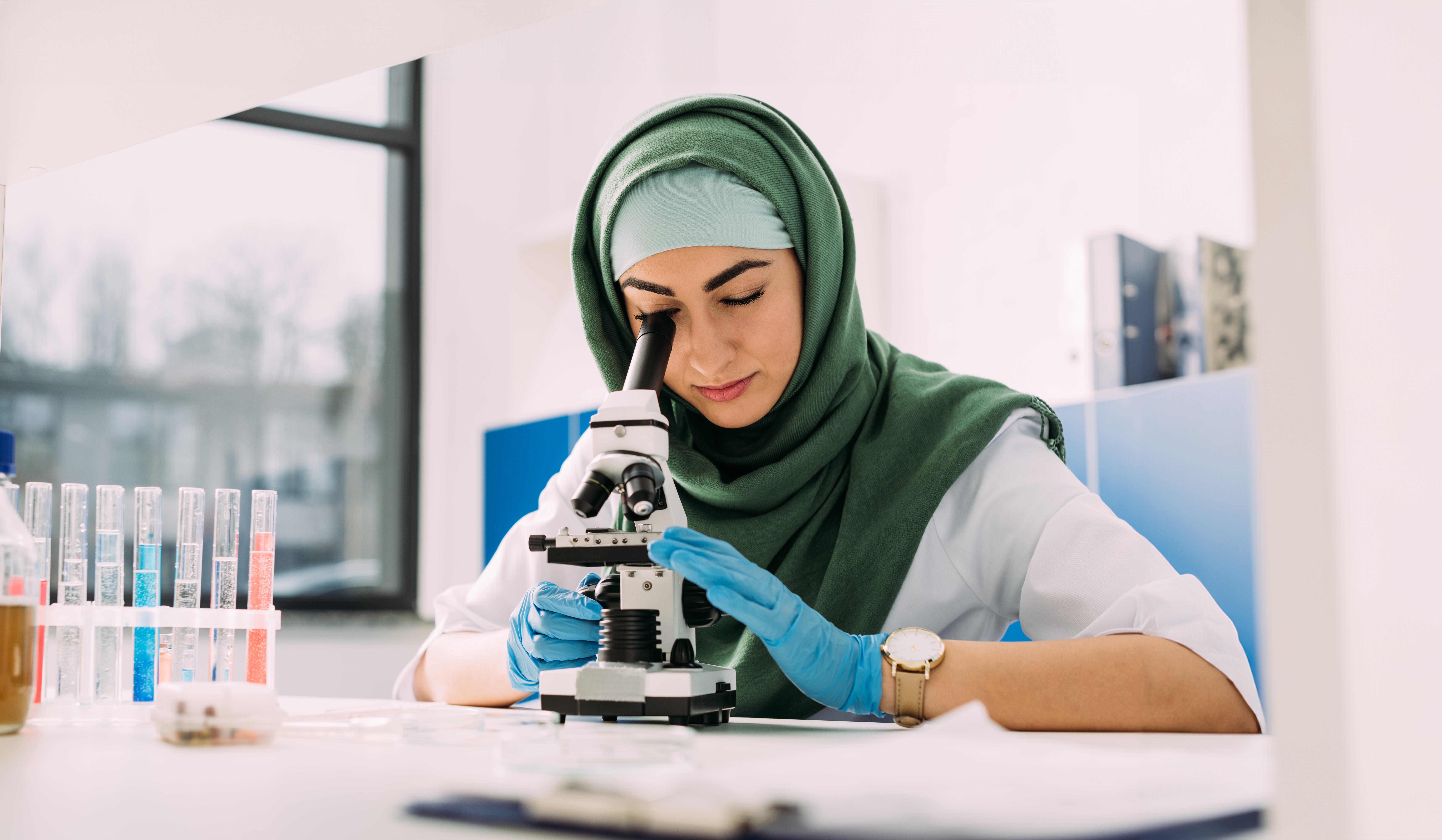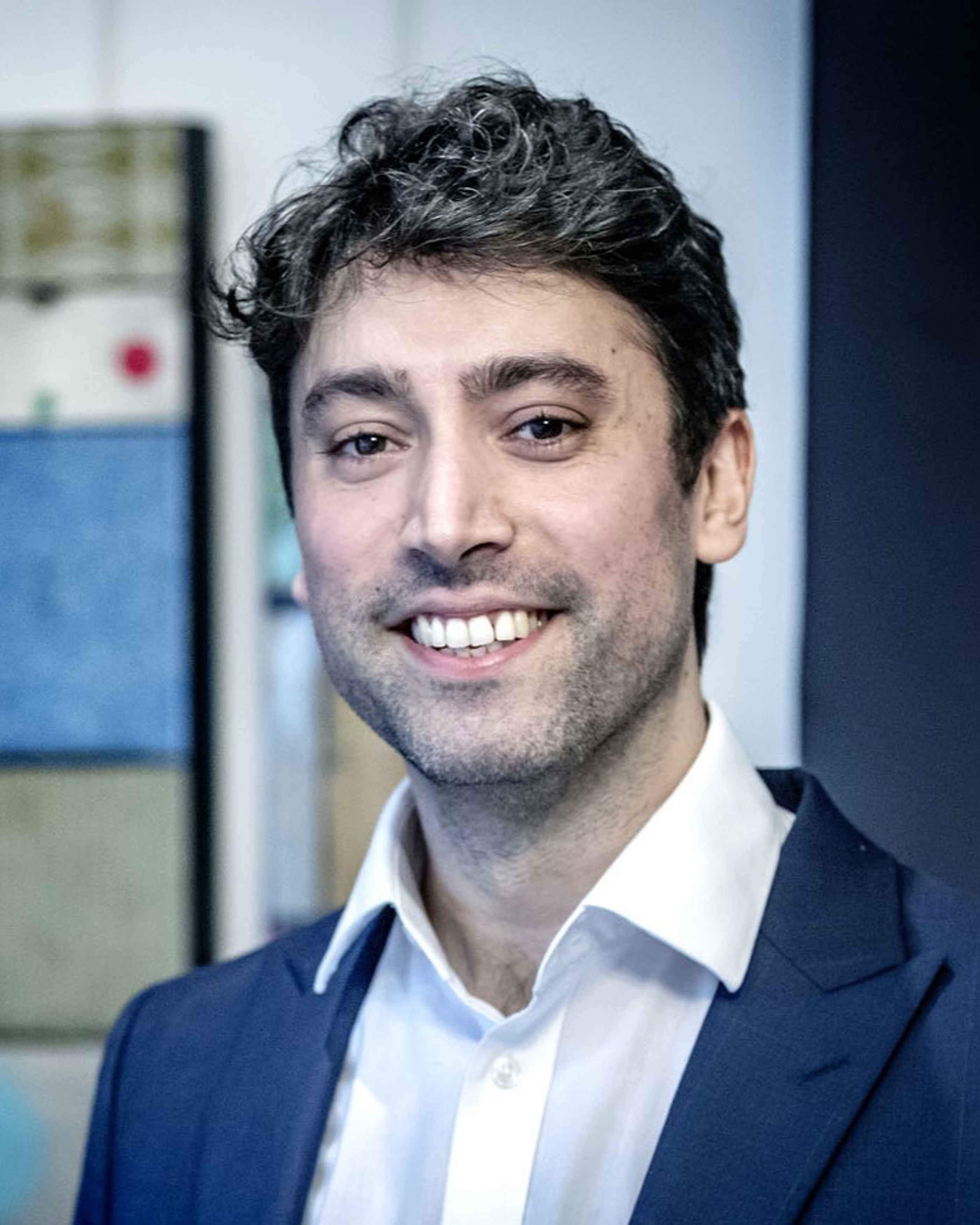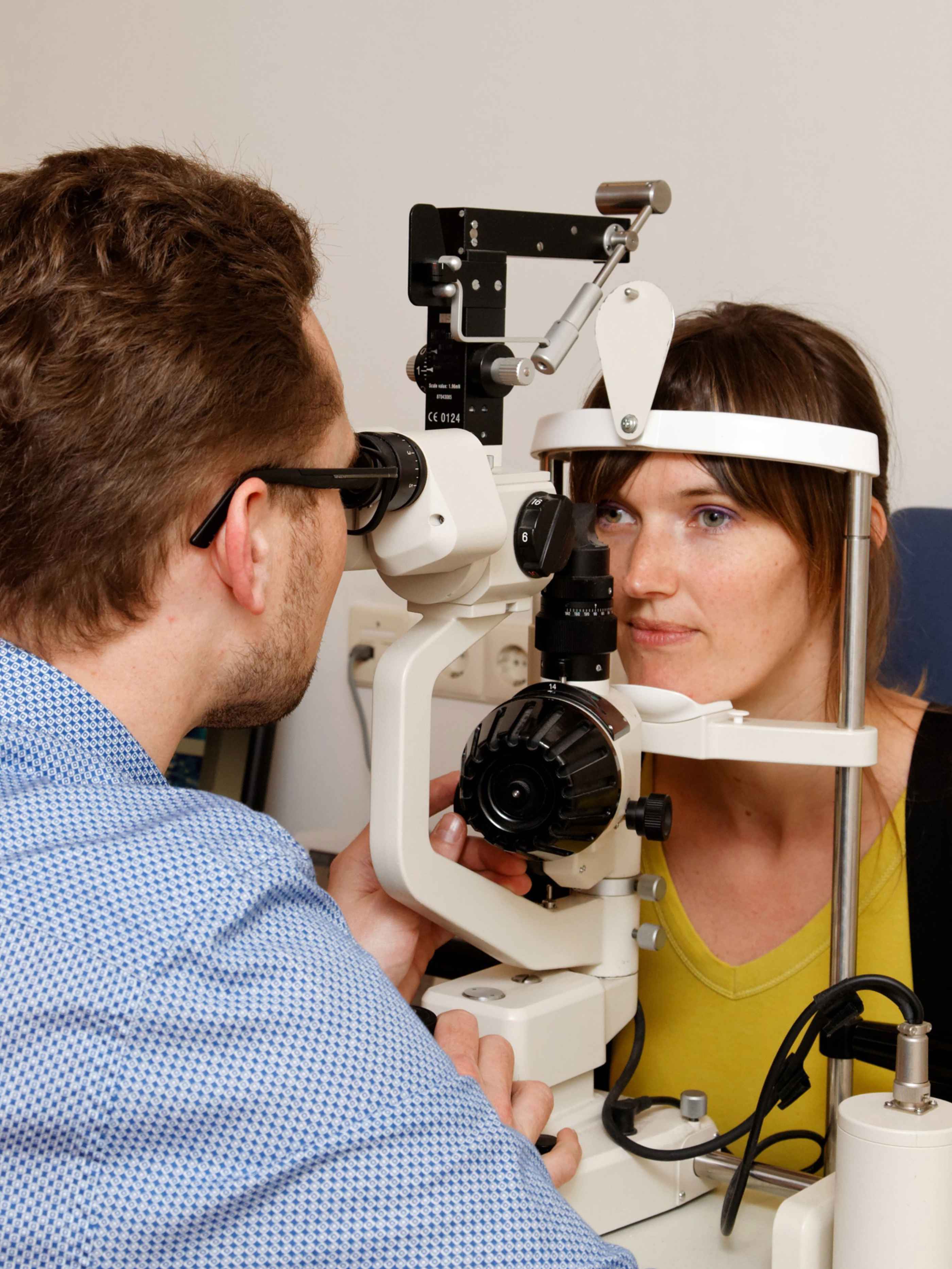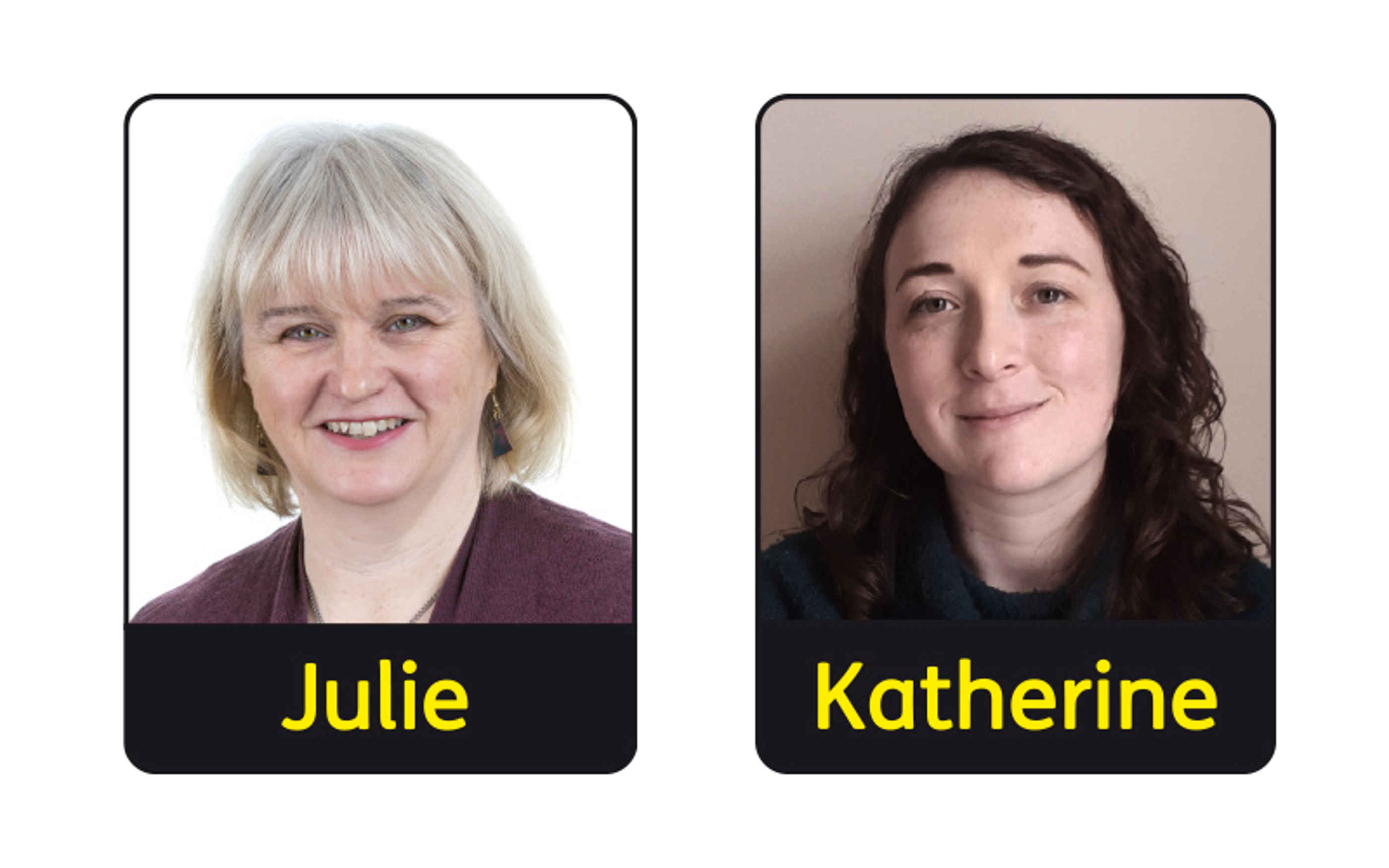Request a Gifts in Wills information pack

Our research programme: investing in the future

Dr Peter Bloomfield joined the Macular Society as Director of Research last year. A neuroscientist by background, Peter has conducted research across many medical topics, from treatments for multiple sclerosis to how our memory works. We asked him about the Society’s plans to strengthen and accelerate research in the future.
Q1 - Progress is being made in research, but it takes time. Can we accelerate this and get to a cure more quickly?
Answer: A huge amount of work goes into developing a new treatment or bringing a drug to market; on average it takes about 10 years and costs a billion pounds, so a great deal of time and funding are required. The Macular Society has always operated at the earliest stages of that process, understanding the underlying causes of macular disease and uncovering new ways to potentially stop it.
But there’s a vast number of other topics that we can research, to accelerate progress. Think of finding new treatments as a funnel: you have lots of discoveries at the top and gradually, as they filter through, you identify what’s really promising and can be taken to clinical trial. This will result in one or two promising potential medicines from hundreds or thousands of starting options.
We hope that through collaboration we can work with partners to reduce the amount of time and cost that it takes to get those new drugs to market. We’re also really keen on expanding into technology that can be used in diagnosis or to help people live with sight loss.

Bringing the patient into all of these different areas is crucial to making sure that discoveries and anything that’s developed actually work for people living with macular disease.
Q2 - But we’ll still continue to fund those “top of the funnel” new discoveries, won’t we?
Answer: Yes absolutely. We’ll still be funding the best macular research at UK universities through our grants programme, spending up to £250,000 a time on projects with huge potential to find a breakthrough. What I mentioned earlier is alongside that, how we will move into the more translational research field, involving people with macular disease all the way.
Q3 - What’s most exciting do you think about all the research that’s been done so far and what has been achieved?
Answer: We have new treatments now that people wouldn’t have dreamed of back in 1987 when the Macular Society was founded. We understand so much more about what happens in the eye as disease develops. The work scientists have done, with Macular Society support, around early stage age-related macular degeneration (AMD) is exciting; if we can identify those tiny changes in the eye as AMD begins, we can find ways to intervene earlier and save more sight. We can also start to better tailor treatment to individual patients.
Q4 - Is macular disease related to other health conditions and are we learning anything from research going on elsewhere?
Answer: Recent research has looked at the risk factors for macular disease and for other diseases like dementia, Parkinson’s, cardiovascular diseases and diabetes. There are risk factors common to all, which is useful to know when considering treatment options for any of those conditions.
Q5 - Are we working with other charities to share our knowledge and expertise?
Answer: Where there are overlaps with other conditions it’s vital to work with experts in those sectors, whether charities, international players or pharmaceutical companies. We can all work together to move the macular field forward.
Overall, the UK spends just over £4 billion a year on medical research – that’s across all diseases. Half of that comes from the Association of Medical Research Charities, the other half from the National Institute for Health and Care Research and Medical Research Council. Eye research gets a fraction of this – a fraction of what’s really needed. Collaboration is key as together we can call for greater investment in eye research.
Q6 - How can we make sure we recruit and keep the best scientists around to carry out this research?

Answer: People are so important to scientific progress. Collaborating with other fields is a really good way to bring researchers into the macular arena, so if you have someone who’s really good in another area of research, they can take their interests and apply them to macular research. That’s one
way to build the talent pool.
But there are also postdoctoral fellowships which we’re introducing – it’s what you do straight after your PhD when you start forging your own path and thinking about setting up your own lab. That’s really hard to do if you don’t have secure funding because if you’ve just finished your PhD, you’re competing with professors and people with a lot more experience. So we think it’s really important to dedicate some of our funding to early career researchers so that they have that support.
Q7 - Many people tell us they’re supporting research with a gift in their Will for future generations, but how can people benefit from research right now?
Answer: They already are! It’s thanks to 30 years of research we and others have funded that we understand so much more about macular disease. Diagnosis is so much better, testing equipment is more sophisticated – and of course we have the drug treatments that have been developed. Then there are stem cell and gene therapy clinical trials going on. That’s all benefitting patients now.
How we engage with patients is really important. People can also be involved directly with clinical trials; we’re always looking for patient advisors to help us understand how a trial can be run to fit in with someone’s life. We also do a lot of research into what it means to experience macular disease, as a patient or caregiver. We always need patient insights for influencing government decision-making around eye care. So it’s well worth people getting in touch with us if they want to be involved in shaping the future of our research.
Q8 - Accelerating research is going to cost a lot of money, isn’t it? Where will that come from?
Answer: Yes, research is expensive, but we are wholeheartedly committed to strengthening and expanding our involvement in the years to come. Money will come from a variety of places but it’s fair to say that we will get there quicker with the help of our donors and members, and especially those kind people who leave a donation to research in their Will. It is such a generous and significant thing for someone to do. Every donor is important to us, and I would like to thank everyone who has ever given and anyone thinking about doing so. It is safe to say that all our colleagues at the Macular Society feel the same and we are grateful to everyone joining us in the fight to Beat Macular Disease.

We'd love to hear from you
By leaving a gift in your Will to the Macular Society, you're giving hope for a cure to every person diagnosed with macular disease.
For a copy of our free Gifts in Wills booklet or to ask about making or updating your Will for free through the Macular Society, please fill in the form or get in touch with Julie or Katherine on 01264 322 410.
Thank you for Beating Macular Disease
If you’re considering leaving a gift or have already left a gift in your Will to the Macular Society, thank you so much. Your generosity is hugely appreciated, and your thoughtful gift will help create a future without macular disease.
Get the latest news and advice from the Macular Society
To hear about life-changing research, treatments and tips for living with sight loss, subscribe to our monthly enewsletter today. Together we can Beat Macular Disease.
Sign up to our free email newsletter

